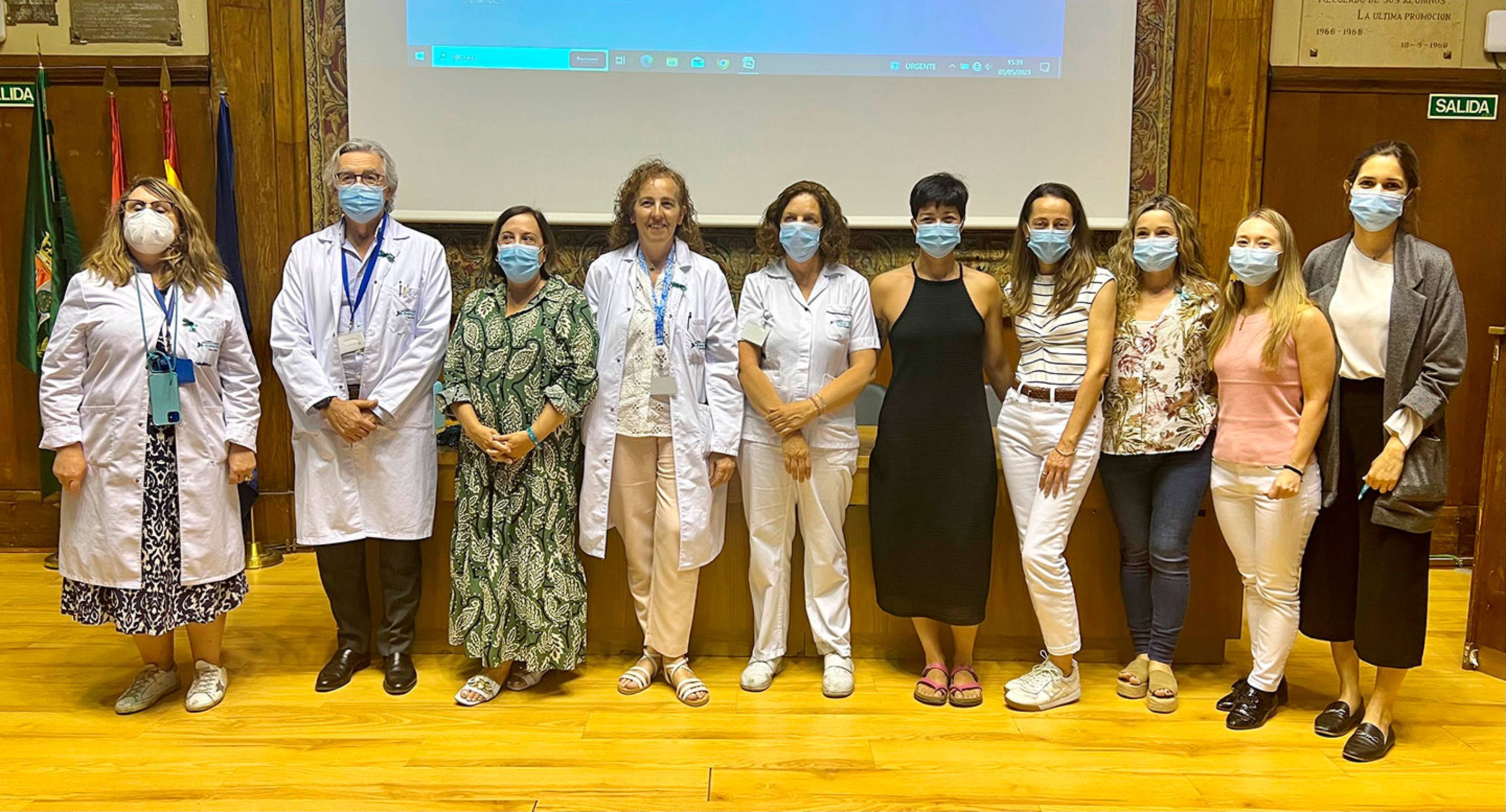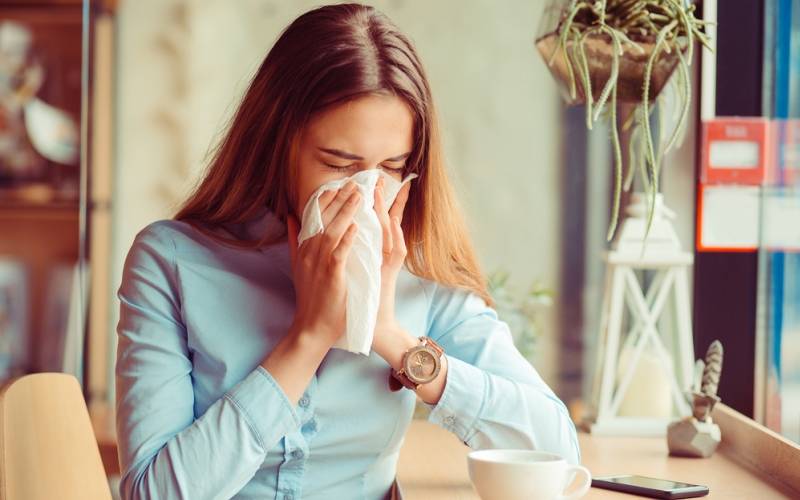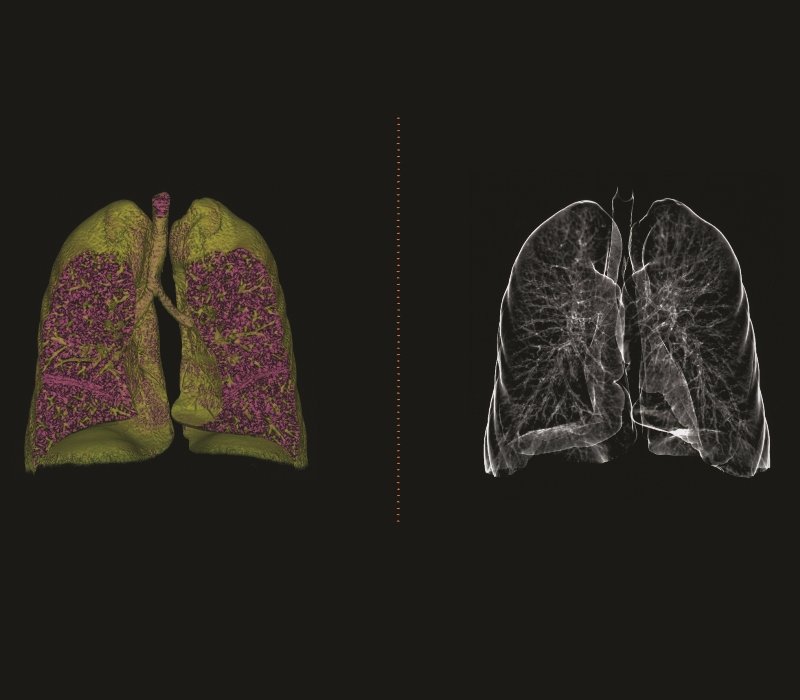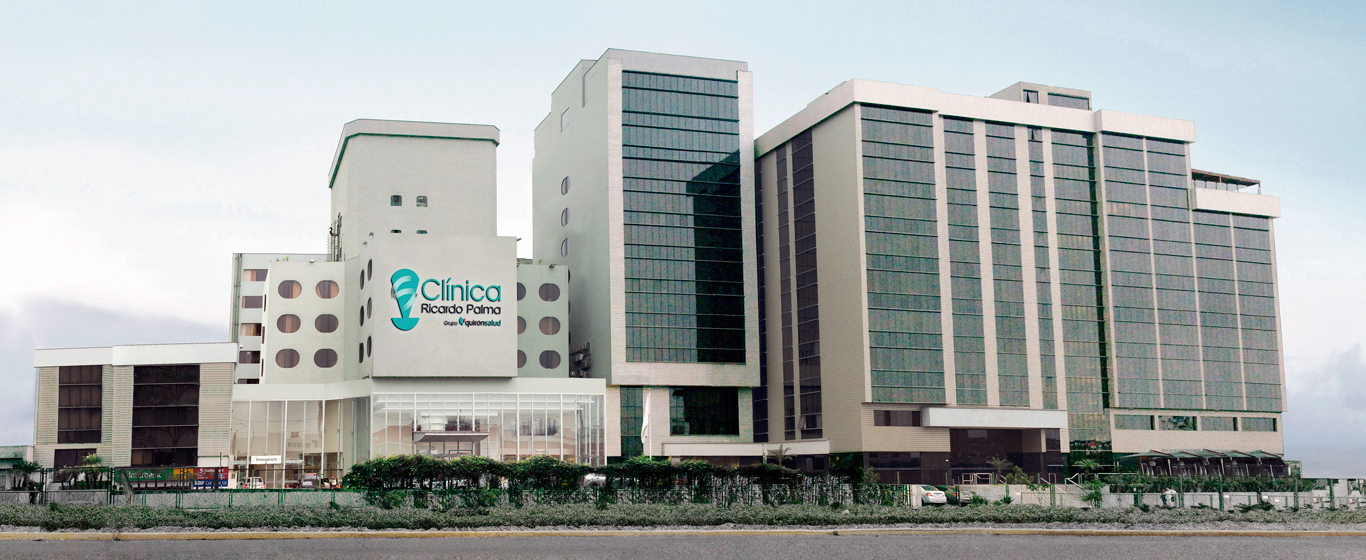Pneumology
Solve your doubts about pneumology. We tell you what its field of study is, what diseases it treats, what are the main tests a pneumologist carries out and what you should expect from the consultation. Book your appointment at one of our hospitals.

What is pneumology?
Pneumology is the branch of medicine that deals with respiratory diseases through the prevention, diagnosis and treatment of pathologies of the lungs, pleura and mediastinum.
One of the main goals of pneumologists in terms of prevention is to stop people from smoking, as it is the main cause of lung cancer and other cardio-respiratory diseases. Therefore, they focus on raising public awareness of the benefits of reducing exposure to smoke and offering patients help to stop smoking.
What does pneumology study?
The main respiratory pathologies can be congenital, hereditary or caused by habits and lifestyle. Pneumology focuses on the study of the causes that lead to breathing difficulties/problems, and the development of effective treatments to alleviate them.
The Quirónsalud team of pneumologists specialise in different specific areas that study in depth the characteristics of each organ and the associated diseases:
- Lung cancer unit: focused on early detection and multidisciplinary treatment of the disease.
- COPD Unit: deals with chronic obstructive pulmonary disease, mainly bronchitis and emphysema, which causes breathing difficulties.
- Respiratory infections unit: studies the environmental and individual factors that can cause infections and the most suitable, effective treatment to prevent them from developing into severe pneumonia.
- Sleep disorders unit: assesses and treats breathing disorders during sleep, such as snoring or apnoea.
- Asthma unit: its main purpose is to control the disease in order to improve patients’ quality of life.
- Smoking unit: studies patients’ level of dependence in order to offer them the most suitable treatment to overcome their addiction.
Which patients is it for?
Pneumology treats both patients with chronic respiratory diseases who need continuous treatment to carry out daily activities, as well as people with infectious conditions or occasional respiratory distress. Also, as mentioned above, it deals with patients who wish to stop smoking and to raise public awareness of the benefits of not smoking.
Techniques, procedures and diagnostic methods
The main tests and procedures that pneumologists perform to make a diagnosis and treat diseases associated with the respiratory system include:
- Spirometry: measures lung function by assessing how much air is inhaled and exhaled, as well as how quickly it is expelled.
- Bronchoscopy: a diagnostic test to look at the airways and lungs using a bronchoscope (a thin, flexible tube with a camera on the end).
- Oxygen therapy: treatment that delivers oxygen at high concentrations to ensure tissue needs in critically ill patients or those with chronic respiratory failure.
- Chest X-ray: a diagnostic imaging study performed with X-rays to detect infections, air accumulation in the pleura or tumours.
- Arterial blood gas: measures the acidity and levels of oxygen and carbon dioxide in the blood to diagnose respiratory failure.
- Pulmonary plethysmography: detects if there is any damage to the structure of the lung or if it is having difficulty expanding.
Diseases and symptoms
Main pathologies and diseases
Some of the diseases treated in the pneumology consultation include:
- Bronchitis
- Bronchiolitis
- Asthma
- Pneumonia
- Cystic fibrosis
- Sleep apnoea
- Lung cancer
- Pneumothorax
- Pulmonary emphysema
- Myopathies
- Pneumonia
- Pleuritis
Related symptoms
The most significant symptoms of pneumological pathologies include:
- Shortness of breath or difficulty breathing
- Fever
- Dry cough
- Headache
- Muscular pain
- Wheezing
- Chest pain
- Fatigue or feeling tired
- Coughing up blood
- Nasal mucus or discharge
- Cyanosis or blueish skin colour
About the pneumology consultation
We solve any doubts you may have before you see the specialist
Following the usual questions about medical and family history and lifestyle habits, the consultation with the pneumologist focuses on the reasons and symptoms that prompted the visit. This is followed by a physical examination and, when necessary, certain tests are performed in the consultation room, such as a spirometry.
What should you keep in mind?
It is important to see a pneumologist when symptoms of respiratory disease are present or when a chronic pathology requires monitoring. Smokers over 40 years of age are also advised to make an appointment for a check-up and to analyse their options to stop smoking.
What should I take to the appointment?
We recommend that you arrive at the appointment with a list of the symptoms you have experienced, the medication that you take regularly and any queries you may have. In addition, you must also bring the reports of any pneumological tests that have been carried out previously.
You may receive a questionnaire a few days before your appointment asking about your medical history, usual medication and other specific questions that will allow us to anticipate certain aspects of your consultation, helping us to expedite and personalise your care. To do this, we recommend that you download the free Quirónsalud Patient Portal application, which will facilitate communication with your healthcare team.

If you have any further questions, please contact us through the Patient Services telephone number: 900 301 013




























































